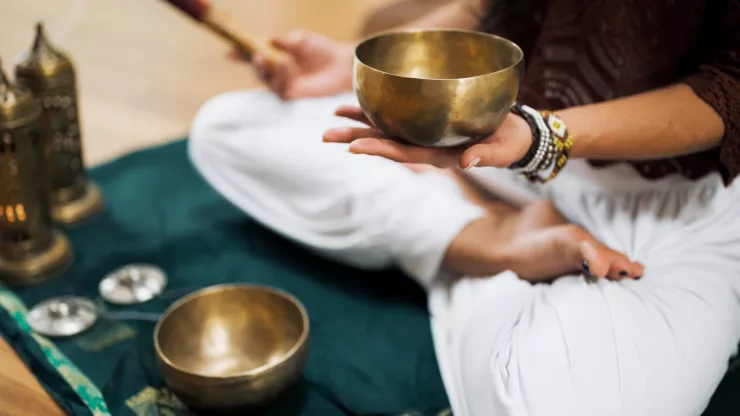Jump to Section
The Importance of Self-Love
Self-love is the foundation of a healthy and fulfilling life. It means treating yourself with kindness, compassion, and respect, and acknowledging your worth as a human being.
When you love and accept yourself, you are more likely to make positive choices, attract positive relationships, and feel confident in your abilities.
However, many people struggle with self-love, often due to negative self-talk, past traumas, or societal pressures.
Fortunately, there are exercises and techniques that can help you cultivate self-love and improve your well-being.
The Power of Positive Affirmations
Positive affirmations are statements that you repeat to yourself to reinforce positive beliefs and attitudes.
They can help you overcome negative self-talk and build self-confidence.
Some examples of positive affirmations are:
- I am worthy of love and respect.
- I trust myself to make the right decisions.
- I am capable of achieving my goals.
- I am grateful for my strengths and weaknesses.
To use positive affirmations, write them down or say them out loud several times a day, preferably in front of a mirror. You can also create visual reminders, such as sticky notes or phone wallpapers.
The key is to make them personal, specific, and present-tense, and to focus on what you want to create in your life.
Practicing Gratitude for a Healthier Mindset
Gratitude is the practice of acknowledging and appreciating the good things in your life.
It can help you shift your focus from what you lack to what you have, and create a sense of abundance and joy.
Some ways to practice gratitude are:
- Keep a gratitude journal, where you write down three things you are grateful for each day.
- Say thank you more often, to yourself and to others.
- Notice the small things that bring you pleasure, such as a sunny day or a good cup of coffee.
- Use gratitude as a coping mechanism in difficult situations, by focusing on what you can learn or gain from them.
Gratitude is not about denying your problems or pretending that everything is perfect. It is about finding the silver lining in every cloud, and appreciating the lessons and blessings that come with them.
Mindfulness and Self-Compassion Techniques
Mindfulness is the practice of being present and non-judgmental in the moment. It can help you reduce stress, improve focus, and cultivate self-awareness. Some mindfulness techniques are:
- Breath awareness, where you focus on your breath and observe your thoughts and feelings without judgment.
- Body scan, where you systematically scan your body for sensations and tensions, and release them through relaxation.
- Mindful movement, such as yoga or walking, where you pay attention to your body and surroundings.
Self-compassion is the practice of treating yourself with kindness, understanding, and forgiveness, especially in moments of pain or difficulty. It can help you reduce self-criticism, increase self-acceptance, and improve emotional resilience. Some self-compassion exercises are:
- Self-soothing, where you comfort yourself with words, touch, or imagery, as you would comfort a friend.
- Self-encouragement, where you motivate yourself with supportive and empowering statements, as you would encourage a child.
- Self-forgiveness, where you acknowledge your mistakes and shortcomings, and offer yourself compassion and understanding, as you would forgive a loved one.
Mindfulness and self-compassion go hand in hand, as they both involve cultivating a non-judgmental and compassionate attitude towards yourself and others.
Self-Care Strategies for Improved Physical Health
Self-care is the practice of taking care of your physical, emotional, and spiritual needs, in a way that supports your well-being and prevents burnout. Some self-care strategies are:
- Eating a balanced and nourishing diet, with plenty of fruits, vegetables, whole grains, and protein.
- Exercising regularly, with a mix of cardio, strength, and flexibility training, according to your preferences and abilities.
- Getting enough restful sleep, by establishing a bedtime routine, avoiding caffeine and screens before bed, and creating a comfortable sleep environment.
- Engaging in activities that bring you pleasure and relaxation, such as hobbies, socializing, or alone time.
Self-care is not selfish or indulgent, but rather a necessary and responsible way of taking care of yourself, so that you can take care of others and pursue your goals.
Building a Support System for Lasting Change
Building a support system is essential for sustaining the changes you want to make in your life. A support system can include:
- Family and friends who encourage and support your goals, and who you can turn to for advice and comfort.
- Mentors or coaches who have expertise and experience in the areas you want to improve, and who can guide you towards success.
- Support groups or communities who share similar challenges or interests, and who can provide empathy, validation, and inspiration.
A support system can help you stay accountable, motivated, and resilient, and can provide a sense of belonging and connection.
FAQ
How long does it take to cultivate self-love?
Cultivating self-love is a lifelong journey, and there is no set timeline or formula. It depends on your individual circumstances, beliefs, and practices, and can take months or years to see significant changes.
However, every small step towards self-love counts, and can lead to a ripple effect of positive change.
What if I don’t feel worthy of self-love?
Feeling unworthy of self-love is a common and understandable challenge, especially if you have experienced trauma, abuse, or discrimination.
However, it is important to remember that worthiness is not something you earn or prove, but rather a fundamental aspect of your humanity.
You deserve love and respect simply because you exist, and no one can take that away from you. If you struggle with self-worth, seek professional help or support from trusted sources.
Can self-love be narcissistic or selfish?
Self-love is not the same as narcissism or selfishness, which involve an excessive focus on oneself at the expense of others.
Self-love is about treating yourself with kindness, compassion, and respect, while also acknowledging the interconnectedness and interdependence of all beings.
When you love yourself, you are more likely to love and serve others, and to contribute to a more compassionate and just world.

With a deep passion for personal development, Ben has dedicated his career to inspiring and guiding others on their journey towards self-improvement.
His love for learning and sharing knowledge about personal growth strategies, mindfulness, and goal-setting principles has led him to create My Virtual Life Coach.
Contact Ben at [email protected] for assistance.




